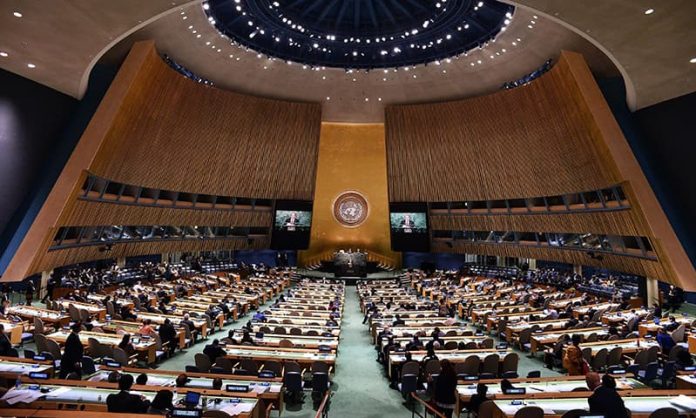The recent exchange of arguments between India and Pakistan at the United Nations General Assembly (UNGA) underscores the longstanding tensions that define their relationship. India’s assertive response to Pakistan PM’s comments on Jammu and Kashmir reveals a critical stance not only against cross-border terrorism but also against the broader implications of Pakistan’s actions on the international stage. India’s First Secretary at the UN delivered a strong rebuke to Pakistan’s assertions, emphasising that the nation has consistently utilised terrorism as a tool against its neighbours, particularly India. She pointedly reminded the assembly of the severe terrorist attacks that have marred India’s history, attributing many of these incidents directly to Pakistan-based terror groups. Her remarks served to highlight the hypocrisy of a country known for its military rule and association with global terrorism, lecturing a vibrant democracy like India on matters of peace and violence.
For decades, Pakistan has raised the Jammu and Kashmir issue in international forums. However, India has consistently rebutted these claims, asserting that Jammu and Kashmir is an integral part of its territory. The complexities of this dispute are not merely a bilateral concern; they are intertwined with larger geopolitical dynamics in South Asia and resonate through the history of colonialism and partition. Mangalanandan highlighted the pervasive issue of state-sponsored terrorism and the challenges it poses to global peace and security. By invoking examples such as the 2001 Indian Parliament attack and the 2008 Mumbai attacks, India underscored the dangers posed by cross-border terrorism, which is often dismissed as an internal issue by Pakistan. Such terrorism has not only impacted India but has also had global repercussions, affecting nations far beyond the South Asian region.
Moreover, India’s response to Sharif’s call for dialogue around the “strategic restraint regime” was unequivocal. This statement encapsulates a significant aspect of India’s foreign policy: the refusal to engage in negotiations with a nation it perceives as perpetuating violence. The call for a dialogue, while noble in intent, must not come at the expense of national security or be misconstrued as an acceptance of Pakistan’s narrative on Kashmir. In the face of these tensions, it is crucial to acknowledge the historical context in which these conflicts unfold. The narrative of Kashmir is deeply rooted in the colonial past of both nations, and the scars of partition still influence their diplomatic interactions. India’s critique of Pakistan’s internal politics, particularly its “rigged elections” and ongoing persecution of minorities, raises questions about the legitimacy of Pakistan’s claims to moral high ground in international discussions.
By referring to international resolutions calling for a plebiscite, Pakistan seeks to reframe the discussion, but this strategy often overlooks the ground realities and the historical agreements that have shaped the current status of Kashmir. The acts of terrorism, political repression, and human rights violations are not merely points of contention but serious matters with grave consequences.
As the UNGA proceedings continue, the strong, principled stance taken by India highlights a determination to confront the narratives that seek to distort the truth. The broader implications of this confrontation extend beyond the confines of bilateral relations; they speak to the global struggle against terrorism and the need for collective security. Pakistan must understand that empty rhetoric no longer holds weight. India is now a globally recognised powerhouse, and the Kashmir issue has been conclusively resolved. The people of Jammu and Kashmir are reaping the benefits of democracy, as evident in the recent ongoing elections. Pakistan should focus on addressing the pressing issues within its own borders. The only remaining disputed territory is Pakistan-occupied Jammu and Kashmir, a fact India has repeatedly emphasised to Pakistan. The path forward lies not in escalating rhetoric but in fostering genuine dialogue that addresses the root causes of conflict while respecting each other’s sovereignty and security. Pakistan has no choice except to accept the present reality.
Trending Now
E-Paper


